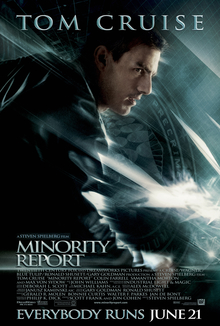"Don't let it end like this. Tell them I said something."
Pancho Villa, last words 1877 - 1923
Endings are important. When it comes to customer service, endings are perhaps the most important time in the customer interaction, primarily because it is your last chance to leave the customer with a good impression, the last chance to correct any mistakes or missteps and the last chance to make things exceptional.

I was once eating lunch with a colleague at a restaurant that was part of a national chain. During the course of lunch, a cockroach crawled across our table. Neither of us at the table were happy about that, but neither of us freaked out either. It did put a certain pallor on our lunch, which ended sooner than we had expected because of the unexpected visitor. When I mentioned what had happened to our server, she expressed appropriate dismay and asked us to wait to talk with the manager.
My first response was that this was good. They were taking our experience seriously and wanted restaurant management to know and have a chance to apologize. But as my colleague and I waited for more than 15 minutes to talk with the manager (we kept being told he would be right there) our anger at the situation grew.
By making us wait for so long (this was a business day and we both had to get back to work), the manager took what would have been a minor situation and escalated it. Instead of giving us the impression that they took the cleanliness of the restaurant and the quality of our experience seriously, the absent manager highlighted the fact that we just weren't that important.
We had more than 15 minutes to think about the little creature that crawled across our table and what that probably meant about how many of his siblings were crawling around other parts of the restaurant. As we had more than 15 minutes to wait, we thought about the meals that we didn't finish due to this incident, the time this was costing us waiting for the manager and the poor attitude of the staff (actually only the manager, but anger has a way of painting with a broad brush.)
When the manager finally decided to attend to us, he immediately went into a rather lengthy and detailed description of all the pest control measures that the restaurant engaged in, which is now and forevermore the first thing I think of when I think of this chain. I am sure their advertising agency will be pleased to know that. It also seemed as if the manager was saying that we couldn't possibly have seen a cockroach because they invest a small fortune on chemicals and exterminators to keep them at bay. In the end, the manager spent another 10 or 15 minutes blathering on about restaurant pest management as if he were preparing for the test on that chapter of the manager's manual.
When I finally interrupted him and told him that we needed to be going he asked us to wait just a minute more and scurried off (somewhat like a cockroach I was thinking at this point.) When he returned he proudly handed us each certificates for a free dessert, next time we returned and purchased a meal. He then charged us for the full meal we were unable to finish. We shook our heads, paid our bill and left. It took me and my family more than 10 years to go back to any store in that chain.
The manager missed an opportunity by a mile. By ignoring us and our situation, he ended the situation poorly. A little sympathy would have made us go away satisfied and we probably would have forgotten it after a few retellings around the office. A discount of our bill or waiving the bill altogether would have made a bold statement and probably would have had us leaving the restaurant feeling pretty good about the place. A bold action like that would have said to us that they cared about our experience and since our experience wasn't great, they wanted to do something about it. I suspect it also would have helped us feel that it didn't happen very often because they couldn't afford to waive everyone's lunch receipt.
YOU have the final say on what type of experience your customers have.
YOU have control over the last impression you and your organization makes before your customer walks out or logs off. Especially when a customer has a poor or less than excellent experience,
YOU have the chance to turn it around into something positive.
YOU have the final say! Make it count!
**********
Everything is Marketing will not be published this Friday as I will be out of state attending a memorial service for my father-in-law. Please take the time you would normally spend reading my blog to call or write to a loved one and tell them what they mean to you. See you again on Monday.
Bill

















































